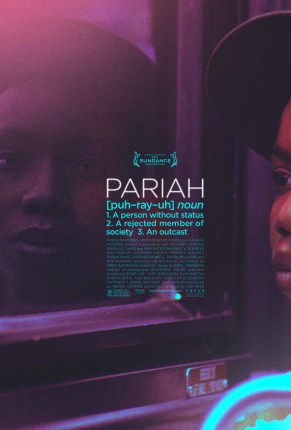 TV and movies lie and we know this and have known this. We know mass media is fueled by private commercial interests, that “reality” TV is anything but, and that movieland’s most popular movies will endlessly churn out a repetitive cycle of well-breasted women in short skirts getting rescued by muscled men with big cars and long guns. It’s rare these days that anything authentic makes it to the screen, let alone something queer and authentic. But it has and it is and it’s called Pariah. It’s exactly where we need to be sometimes: fully present and ready to be in communion with each other.
TV and movies lie and we know this and have known this. We know mass media is fueled by private commercial interests, that “reality” TV is anything but, and that movieland’s most popular movies will endlessly churn out a repetitive cycle of well-breasted women in short skirts getting rescued by muscled men with big cars and long guns. It’s rare these days that anything authentic makes it to the screen, let alone something queer and authentic. But it has and it is and it’s called Pariah. It’s exactly where we need to be sometimes: fully present and ready to be in communion with each other.
Pariah, written and directed by Dee Rees, is the story of a black lesbian teenager named Alike who is fumbling through puberty, queerness, and the rapidly-evolving complexity of her gender identity and all her relationships. Rees doesn’t spare one moment of awkward honesty: we’re with Alike through her first lady-kiss and her first attempt to strap on the strap-on feels remarkably like our own. Rees is telling us: “This is my story, this is our story. I want people to say, I know [Alike.] ”
What’s particularly monumental about this film is that people like you and me do know Alike, but most of the country has no idea people like Alike exist. The title could easily be the best way mainstream media sees queer masculine-of-center women of color. Thus Pariah is part of the collective movement of everyday people demanding truth. It is the fictionalized narrative film equivalent to activist movements such as Forks Over Knives, the Earth Liberation Front and even Occupy Wall Street but the message it’s sending is how to liberate yourself through acceptance and love. Love is the point.
This isn’t an effort to over-simplify a beautiful and profound film; stories that honor truth and love deserve our attention in the same way that we deserve to be loved.
“The communion in love our souls seek is the most heroic and divine quest any human can take”
-Bell Hooks in Communion: The Female Search for Love
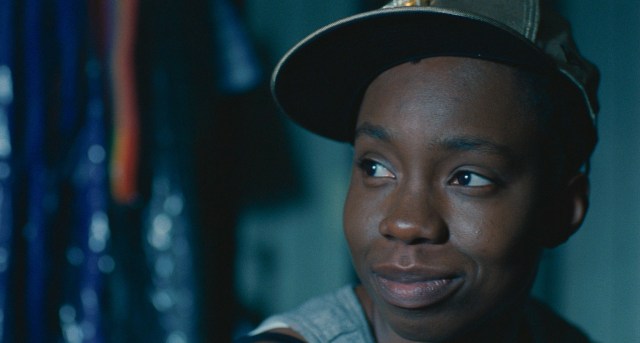
Autostraddle has had its eye on Pariah since it was a short film making the festival rounds and it shares our vision of creating safe spaces where we can explore love and add to the diversity and richness of our community — a place where even in disagreement, there is respect..
So when Focus Features came to NYC with Dee Rees, Nekisa Cooper (producer) and members of Pariah‘s ensemble cast, they landed some super sweet press passes and sent me off on a mission to interview and get down with everyone.
Dee Rees:
Rees is the quintessential writer/director in dark framed glasses, who seems shy but talks in quick rhythm , who isn’t at all pretentious and just needs to share universal stories. Pariah isn’t just some movie she wrote with her imagination, it’s also about her own “coming into” process. That’s not a typo, according to Rees, Pariah is “less about Alike coming out and more about her coming into her personal freedom and place in the world.”
Rees shared how difficult navigating the lesbian world was during her “coming into” period. She felt trapped between stereotypical binary gender norms and a limited view of acceptable ways to present oneself. Being neither butch nor overly feminine, Rees struggled to create and find a queer space. Alike experiences the same discomfort when confronted with AG culture and being dissected by femmes who don’t think she’s stud enough. Dee Rees breaks down some of her feeling on queerness and how that space is intricately connected to Alike’s journey.
Kim Wayans (Audrey):
First, holy awesome shit, I got to interview Kim Wayans.
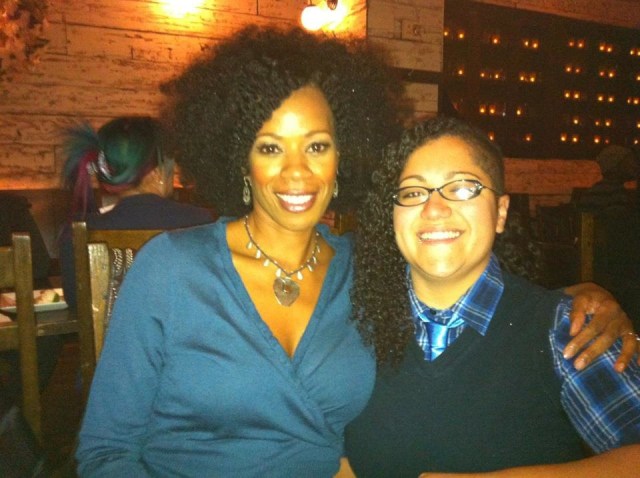
Second, her performance in Pariah is so brilliant and nuanced that if she doesn’t get nominated for an Oscar, I’m pulling out the “yes, racism still runs rampant in the world card” and stuffing it up his golden ass. (See Hey Oscar, Why Wasn’t For Colored Girls Enuf?) Wayans plays Alike’s mother, Audrey, with such quiet intensity that I almost couldn’t believe it was her. Apparently, I’m not the only one, Wayans almost didn’t even get a chance to audition for Audrey because she’s mostly known for being a comedic actress on shows like In Living Color. Thank God, she did because we are graced with an honest Audrey, the religious, devoted mother living in the denial of her daughter’s budding homosexuality and her husband’s possible adultery. Straight up, I felt like I was watching my own mother on the screen. She made me feel like I was a scared sixteen year old again hoping my mom wouldn’t beat me with a Bible cuz I liked girls. According to Wayans, she approached the role of Audrey from “her heart, from the place of a mother who believes that she’s doing what’s right: a mother in a desperate struggle to save her child by any means necessary.”
Adeperu Oduye (Alike) and Pernell Walker (Laura):
Alike and Laura are best friends in Pariah. Let’s skip all the sweet and sour involved in that and get straight to one of the best moments in Pariah. Lesbosexy Spoiler Alert: Pariah has one of the best strap-on scenes ever in life. Seriously, hands down I don’t care what episode of the L Word you want to compare it to. It’s the best. And so we had to talk about it. When do we ever sit down with beautiful creative women of color, gay and straight and in between and all over the spectrum, and talk about strap-ons?! Never. That’s when. So we went for it and it was awesome. Odeperu and Pernell wax dildo poetics and what it represents for both of their characters. (Keep an eye out for Pernell’s facial expressions when the words “hard” and “dildo” come up. Priceless.) Dee Rees also shares her feelings on expressions of sexuality through the use of the strap-on that “doesn’t match.”
Nekisa Cooper (producer) and Dee Rees:
Think that having Spike Lee as an executive producer and winning an award at Sundance is enough to make your feature film debut a reality? Think again. Check out how Pariah almost didn’t happen because being “too black and too gay” makes people with money nervous about making movies. Producer, Nekisa Cooper, stuck by Rees through loss of funds and lack of studio interest, to prove that relevant, important art can and will be made no matter what. Adeperu Oduye reflects on how universality was the film’s ultimate saving grace.
Pariah will be released in major cities beginning Dec. 28th. Check out their Focus Features page to find where it’ll be playing near you and go see it. Be apart of the truth revolution and if that sounds too crazy, see Pariah for Alike: a queer beautiful black teenage girl figuring out her life on screen. Dive into a movie that doesn’t tell you how to be or what to wear or who to fuck created by people who just want you to feel connected.
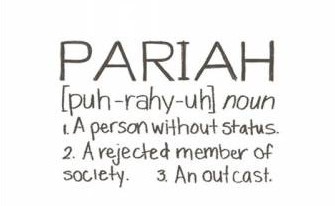
Tell us what lies you’re sick of , how hearing cute girls talk about strap-ons makes you feel all warn n fuzzy inside and how you’re queer community shows you love. Also, have you seen Pariah? What did you think??







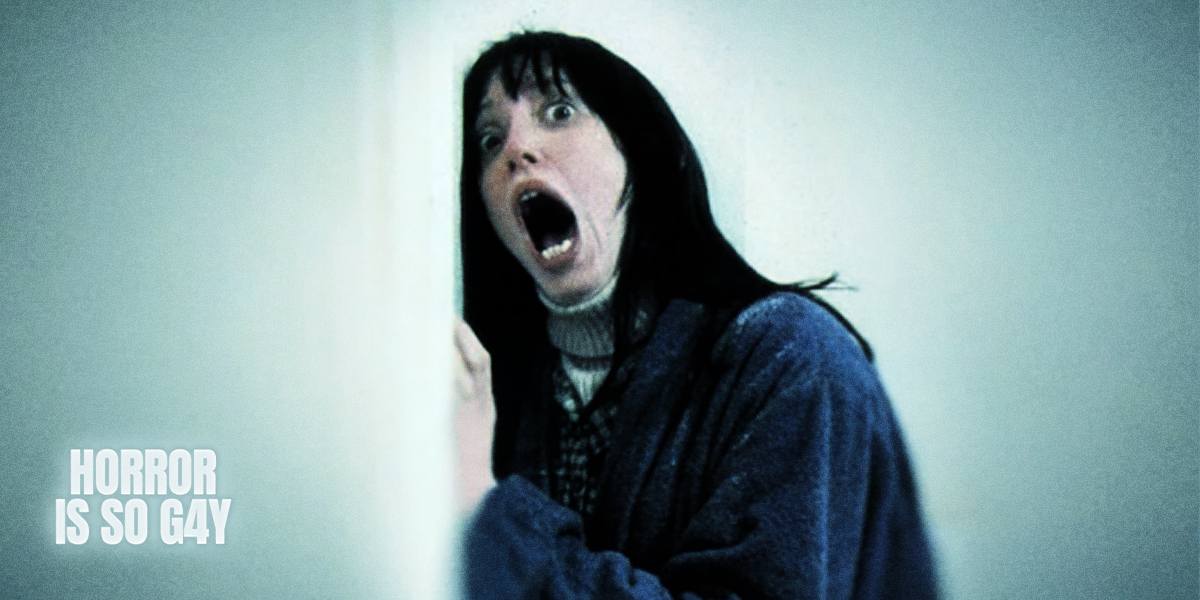
Comments
I’m so happy that this movie is getting so much press and has an actual distribution deal because I am DYING to see it! These interviews are great, and the more I hear about the movie the more excited I am about it.
what a great series of videos! a really great job putting this together. :D i’m super excited to see this movie.
Hey,
So I’m from Ann Arbor, MI. I’ve been trying to track this movie for what seems like months! Do you have any idea when/if it’ll be here? I really really want to see it! Glad to read the reviews :)
Thank you!
Here’s a list of where it’s playing and when. I don’t see Ann Arbor on here, but maybe it’ll have a wider release later?
http://focusfeatures.com/pariah/theatres
I feel like if it comes to A2 it will do well. I really hope it does because I want to see it so badly!!
Great videos! I’m so thrilled about this film and it isn’t even showing anywhere near me! (yet) I really hope I get the chance to see this on the big screen at some point and support these wonderful creative folk.
Urghh I’ve wanted to see this movie since Autostraddle first started talking about it and now that it’s finally coming to theaters it is of course playing nowhere near me. Anyone from NC want to take a road trip down to DC with me?
I happy to be visiting my girlfriend’s family in downstate NY right now and I’m seeing it in NYC tomorrow. So excited!
happen* I also can’t type for shit, apparently =P
I saw this film when it screened at MOMA in NY last spring shortly after Sundance. And i LOVED it. I’ve loved watching the growing attention it has received since it came out.
Honestly, I think Alike is the character whose coming out/”coming into” process has felt most familiar to me. I’m excited to see this film again on the big screen, I want very much to support the film in any way i can.
And Gabrielle, these interview clips are awesome. I rarely feel like i get anything substantial from press interview clips, like no one is really asking interesting or relevant questions. I love that you did.
thank you. love and hugs and queer movie things!
I wanna see this movie.
Well-breasted.
So glad I live in a Chicago suburb… there are two different theaters screening this film only about a 50 minute drive away!! :D Not too bad. I’m getting my ass over there ASAP because I’ve been dying to see this film since the first moment autostraddle covered it.
Lucky! I miss Chicago. I use to go to the Music Box Theatre on Southport Ave. all the time. Now I am stuck in a rural town in the middle of nowhere where the mean owner of the theatre will not play this kind of movie because it is to racey. Enjoy it for the both of us!
Riese and I saw this in San Francisco a little while ago and it was so good we couldn’t talk about it for ten minutes afterwards. IT IS SO GOOD. Please everyone see it who can. Part of why it was so fantastic and refreshing was because it’s just simple, honest stories about real relationships, which is all you really need for a great story, and movies don’t seem to be interested in telling real, honest stories about people anymore.
I saw this at TIFF with my best friend back in September. It was really good. And the soundtrack is AWESOME.
going to see this friday. soooo excited!
I really want to see this and I’m in London. Is there any talk of international distribution? I imagine they will submit/it will get selected for the London Lesbian & Gay Film Festival.
You know you missed it already at the London Film Festival (in October), right?
Universal Pictures is Focus Features’ distributor in London. IF it gets a UK release you can find when it’s coming out either at their website – http://www.universal.co.uk or at http://www.launchingfilms.com/release-schedule/. Depends on what plans they have for the movie as to whether it they’ll allow the LLGFF to screen it, and it might complicate things cos it’s already screened in the LFF. We’ll have to wait and see.
D’oh! – that website is http://www.universalpictures.co.uk/.
If this doesn’t get released in/around Philly I WILL DIE.
i haven’t been this excited about a movie in years. hello roadtrip.
i was actually an extra in the first 2007 Pariah film and it’s great to see that the film not only developed into a full length feature but is getting the national recognition that it deserves. the film has always resonated with me because it tells the story a group that is rarely focused on : young black lesbians. one plot point i paticularly related to the fact that alike was estranged from her family because of her sexuality; at the point that i participated in the film, most of my friends (including myself) had been kicked out by their families for coming out as gay or trans. our group of friends became our surrogate family were we sought understanding, advice, and support from each other and i saw that in the film. and although i’ve haven’t directly experienced feeling aliented by the black lesbian community for my gender expression because i’m a femme, i have had friends who more gender neutral tell me they felt pressured to pick between being a femme or a stud/ag, particularly when they were teenagers, which i personally find asinine, so the third film about trying to conform and fit in was very true to life and made me giggle. i was going to go see the film in nyc tonight but unfortunately couldn’t make it so hopefully i’ll get to see it in the next few days. all these videos were great though.
I cannot wait to see this film. Hopefully I will be accompanied by someone queer-tastic, though actually I’d probs sit in the theatre by myself and suck up the experience.
soak up that solo cinema experience. i often go to the movies alone. i find it to be peaceful n stuff.
Woop woop, excited to see this – hopefully it will come over the Atlantic soooon!
I can’t wait to see this!!
Words can’t even begin to describe how excited I am to see this film. Come to Toronto!
I am headed to the midnight showing in Hollywood right this very instant!
i am so happy/thankful that this film exists, and that i’m going to be able to see it. the article/these interviews are so great, thank you so much for this
I would love to see this!! Hopefully it makes it’s way to Australia sooner rather than later!
I cannot wait for some of your reviews on the movie! Hopefully, the movie will be released in Hong Kong either next year or 2013. I surely will show others and make certain that local festival gets words about the movie.
This looks amazing, and of course, there is no way in hell I’ll be able to see it before DVD (living in a small college town!) Boo.
Just came back from watching the film in NYC. Holy crap, you guys. It was fantastic beyond words. I just hope that it gets the recognition that it deserves.
1) Autostraddle, I am shocked. Capitalizing bell hook’s name?
2) I am so excited to see this movie/force my queer group to see it/anything.
I. LOVED. this. movie.
Guess I’ll just wait FOREVER for it to come to Ohio. :(
i just saw this movie in theaters in LA and there was no strap-on scene, and no real love interest plot line between laura and alike, JUST SAYING. also it was super short, so I’m thinking maybe a few scenes got cut for stepping just a little too far away from the status quo…
loved it nonetheless
wait….what do you mean there was no strap-on scene? like none at all? like not even one in a shopping bag? I am thoroughly confused!
and between laura and alike there’s a lot of confusing best friend/love-y type of feelings happening, i’m not sure how that could have been deleted or edited out…
so strange…